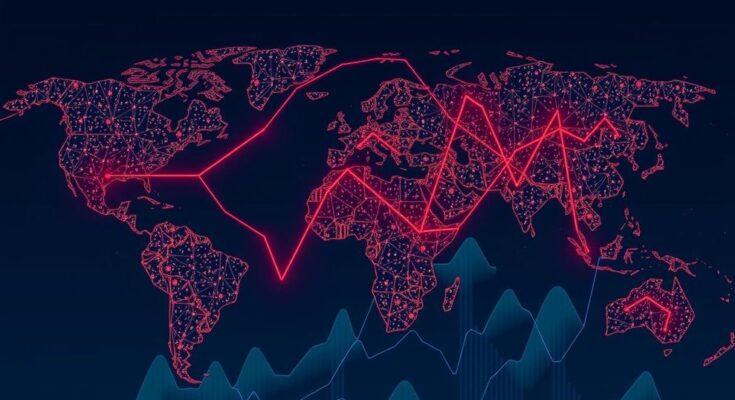The potential re-election of Donald Trump in 2025 raises concerns regarding economic policy uncertainty, specifically the planned increase of tariffs on imports. This article explores the predicted impacts on global trade, economic growth, and climate initiatives, featuring insights from Raphaël Gallardo, Chief Economist at Carmignac.
The prospect of Donald Trump’s potential re-election as President of the United States is creating an atmosphere of uncertainty regarding economic policies planned for 2025. Trump’s administration has indicated a commitment to increase tariffs on a wide array of imported goods, which may have significant implications for international trade dynamics. This article examines the possible effects of Trump’s return on the global economy, with a focus on how these changes might influence economic growth, innovation, and environmental considerations across major economies including the United States, China, and Europe. The insights of Raphaël Gallardo, Chief Economist at Carmignac, will be integral to understanding these complexities and forecasting future trends in the global marketplace.
In the context of economic policy formulation, presidential elections play a pivotal role in shaping both domestic and international trade environments. Donald Trump’s approach to tariffs and trade has been markedly contentious, influencing various sectors from manufacturing to technology and agriculture. As trade policies evolve, there are key considerations that address not only economic growth and stability but also the broader implications for climate change and environmental sustainability. Understanding the economic landscape of 2025 requires analyzing the interplay between trade, innovation, and climate policy amidst changing political tides.
In summary, the potential re-election of Donald Trump could lead to significant shifts in economic policy that might impact global trade and innovation. The promise of increased tariffs introduces risks as well as opportunities for various economies. By examining the insights provided by experts such as Raphaël Gallardo, stakeholders can better navigate the complexities of the evolving economic landscape and its potential repercussions on both growth and climate action in 2025.
Original Source: www.france24.com




